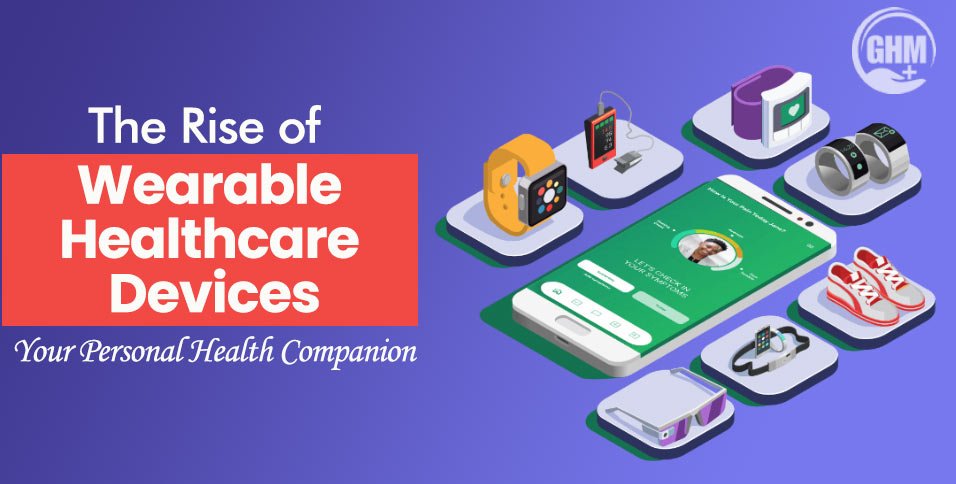In recent years, we’ve witnessed a remarkable surge in the popularity of wearable healthcare technology. These innovative devices have rapidly become an integral part of many individuals’ lives, offering a convenient and user-friendly way to monitor and manage various aspects of health and wellness. This article explores the growing usage of wearable devices in healthcare, highlighting their benefits, popular types, and their promising future.
What is Wearable Healthcare Technology?
Wearable healthcare technology refers to health monitoring devices worn on the body, typically on the wrist, to track the wearer’s health data. These devices utilize biosensors to collect information such as heart rate, sleep patterns, activity levels, and more. The beauty of these wearables lies in their ability to make health monitoring hassle-free and accessible to everyone.
Why Use Wearable Health Monitoring Devices?
The convenience and ease of use of wearable health monitoring devices make them a valuable addition to one’s life. These devices automatically track vital health information, saving users time and effort. Most wearables are capable of accurately measuring heart rate, sleep quality, and activity levels. While some limitations exist, such as the inability to accurately measure blood pressure, many devices can connect to specialized medical equipment to provide comprehensive health data.
Sensors in Wearable Healthcare Technology
The heart of wearable healthcare technology lies in its sensors. Biosensors, which can detect biological, chemical, or physical signals, play a crucial role in these devices. There are two main types of sensors commonly used:
- Photodiode Sensors: These sensors convert light energy into electrical energy. Although they may not be the most accurate, they offer a cost-effective option for manufacturers. They can translate data from veins into usable information relayed back to the wearable device.
- Complementary Metal-Oxide-Semiconductor (CMOS) Sensors: CMOS sensors are renowned for their accuracy and intelligence. They can focus accurately and filter out external noise and light, making them highly reliable. Some CMOS sensors can even detect heart conditions like atrial fibrillation (Afib).
Best Health Monitoring Devices for Everyday Use
Let’s take a quick look at some of the best products for various healthcare monitoring needs:
- Blood Pressure Monitors: The Qardioarm Blood Pressure Monitor stands out as the best in its category. It provides accurate blood pressure readings directly to your smartphone, ensuring your health is in your hands.
- Glucose Meters: The Freestyle Libre 2 is a game-changer for diabetic glucose monitoring. Placed on the upper arm, it reduces the need for frequent finger pricks and provides continuous monitoring.
- ECG Monitors: The Apple Watch, with its ECG capabilities, helps detect abnormal heart rhythms. While it has its limitations, it’s a significant step toward proactive heart health management.
- Fitness Trackers: Fitbit Charge 5, known for its accuracy and ease of use, offers comprehensive fitness tracking, helping you stay active and healthy.
- Integrated Activewear: NADI X Activewear takes innovation to a new level by integrating technology into clothing. It uses mild vibrations to guide users in yoga practice, promoting better fitness.
The Future of Wearable Technology in Healthcare
The future of wearable technology in healthcare holds immense promise. Engineers continue to improve sensors and technology, providing users with precise health monitoring. Wearable health tech empowers individuals to take a proactive approach to their well-being. While the market already boasts advanced options like the Apple Watch, it’s clear that innovation is far from reaching its limits.
In conclusion, wearable healthcare technology is on the rise, and it’s changing the way we approach our health. These user-friendly devices offer valuable insights into our well-being, making health monitoring more accessible than ever. As technology continues to evolve, we can expect even more exciting developments in the realm of wearable healthcare devices.



















